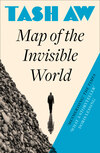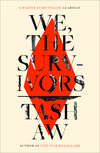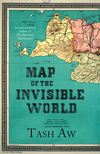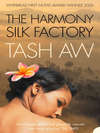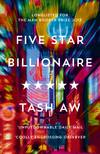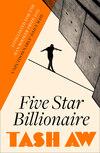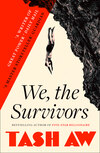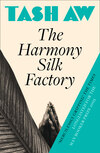Читать книгу: «Map of the Invisible World», страница 6
6
One day, not long after he turned thirteen, Adam ran away from home. He woke up that morning and decided he would look for his mother.
For some weeks before this he had been feeling strange, not at all himself. He would be agitated by the smallest thing: the mewing of the fat white cat outside his window, or the squeaking of his bed-frame every time he turned over on the too-thin mattress, or his cupboard door that never closed properly – things he would not normally have noticed. He was irritated by Karl, too – by his uneven club-footed gait, by the pinky-whiteness of his skin which seemed obtrusive against the dull green landscape and, above all, by the way Karl sometimes mumbled to himself: indistinct words in an indistinct language under his breath without even realising he was doing it. ‘Was I talking to myself again?’ Karl would say, clearing his throat and attempting to laugh whenever he noticed Adam glaring at him. ‘Just a silly poem I remember from a long time ago.’ But it did not matter what he said, for Adam would try to ignore this, but as soon as the dreadful half-whisper started, Adam felt a curious sensation in his head, a pinprick that welled up quickly into a hot, almost burning feeling that filled his skull, pressing especially insistently behind his eye sockets. He would no longer be able to read or concentrate on what he was doing and would be so overcome by this pressure in his head that he would have to retreat to his bedroom. There, on his bed with his pillow over his face, he would still be able to hear Karl’s voice.
As if guilty by association, Karl’s music soon began to annoy Adam too. It made no difference what it was: the moment Karl moved towards the record player, Adam’s back would stiffen. Violins that had previously thrilled him now sounded harsh and screeching; operatic voices, amusing before, were suddenly ridiculous. Adam took to leaving the house altogether. Heading for the sea, he would clamber over the rocks and make his way as far up the shoreline as possible until even the faintest strains of Karl’s dying heroines were drowned out by the hush of the waves. One or two outrigger canoes would be floating on the steel-blue sea, their sails trembling gently in the breeze; small nets would be flung from the boats, the fishermen hauling in meagre catches of mackerel and skipjack and anchovies. Adam would sit watching until his head felt clear and calm once more, the anger draining from his body.
‘What’s wrong with you? Why are you so angry?’ Karl called out after him the first time he got up and left the room, mid-aria, and ran down to the sea. That was what it was, this thing that filled his head: anger. Until this moment, since beginning his New Life with Karl, Adam had never truly known what it was to feel angry. He wondered whether this anger meant that he was somehow changing, and if so, how. He would lie awake in bed thinking, Why am I angry? and, finding no answer, would become angrier still.
At school he suddenly became conscious of what he was: an orphan. He had never been aware of this status, for many of his classmates seemed to be orphans too. Every so often someone would drop out of school to work in the ricefields or help with the nets, and Adam would learn that their father had drowned at sea or their mother had died in childbirth; now they were an orphan. On this island it seemed entirely normal to have lost at least one parent. But one day they had a new teacher, a young Sasak who had studied at the Universiteit van Indonesie. He taught them the difference between orphans who had lost one parent and those who had lost both. There was a word that distinguished the two: piatu. It was important to be precise with our Indonesian language, the teacher said; we have to use it carefully and with pride. This revelation troubled Adam greatly. Had he been orphaned once or twice? Was he a true orphan, more pitiful than the others? He went home and consulted Karl’s dictionary, kept on the highest, dustiest shelves like some forgotten, forbidden relic. Perhaps he would be less of an orphan in Dutch. He would discover that in every language but his own he would be an ordinary, unremarkable orphan. He remembered the Dutch for ‘orphan’ and found it quickly, but the definition was full of words he did not understand and left him more frustrated than ever.
One evening, just before dinner, Karl put on some music – a Keroncong song’s repetitive stringy notes. They sat down to their meal: over-cooked mutton curry and rice.
‘Not hungry, son?’
Adam did not answer; he did not even bother to shake his head. With his spoon he built mounds of rice on his plate and then mashed them into the shallow pool of curry before rebuilding and remashing them. The edge of his plate was decorated with faded purple flowers whose stems disappeared into the brown swamp that Adam had created.
‘Adam,’ Karl said, ‘please don’t play with your food. A lot of people on this island are surviving on one meal every three days, and I mean one meal of rice mixed with tapioca.’
Adam dabbed at the curry. He found a morsel of meat and tried to cut it using the side of his spoon, but the mutton was tough, full of tendons.
‘Use a knife, Adam, you’re making a mess.’
Adam went to the kitchen and returned with a blunt butter knife. He began to saw at the piece of mutton listlessly, as if he had already given up.
‘Please,’ Karl said, ‘don’t hold your knife like that. Put it between your thumb and forefinger – you’re not holding a pencil.’
Adam looked straight ahead, avoiding Karl’s gaze and glaring instead at the piano. Then he smacked the knife down on the table, catching the side of his plate and upending a thick glob of curry onto the linoleum tablecloth. He felt his eyes well up with hot tears, his head prickling with that burning sensation that he now knew to be anger; and this time the anger seeped downwards too, filling his chest and belly.
‘Don’t you leave the table, Adam,’ Karl said, his voice still calm. ‘You’re going to stay here and finish the meal that you are lucky to have. If there is something you are not happy about, say it – but don’t you dare leave food on the table.’
Adam had already risen, his chair pushed back, his hands clutching the side of the table. He remained in this state of limbo for some time, making no attempt to wipe away the thick streams of tears flowing down his cheeks.
‘I want to know,’ he said at last. ‘I want to know about my family.’
Karl sighed. He placed his fork gently on the edge of his plate and then leaned forward, resting his elbows on the table. He held up his hands and looked at his palms, intently, as if trying to decipher the secrets of his own life. He lowered his face into his hands and sighed again. ‘I found you at the orphanage, that’s all. You know the whole story. There’s nothing more to tell.’
Adam looked away from Karl. ‘Everyone has a history, you told me that yourself. I want to know about my life – my real life.’
‘But this,’ Karl said, gesturing weakly with both hands at the space around him, ‘this is your life. Isn’t this enough?’
There was no breeze that evening. The rose-coloured lace curtains over the always-open windows did not stir. Adam stared at their pattern of chrysanthemums and palm leaves. The room suddenly felt airless and utterly still.
‘Your mother was not local.’ Karl spoke in a measured monotone, as if he had rehearsed saying these words a thousand times before. ‘Some people said they had seen a fair-skinned woman in the village the day before you were found. She had the complexion of a Sumatran or a Malay and she spoke differently, with a big-city accent – Jakarta, some people thought, but no one was sure; it was difficult to understand what she was saying. Someone asked her where she had come from and she said, “From a place far away.” She asked directions to the orphanage. She had a baby. It was so silent and still that some people thought it was dead. There was a toddler too, a little boy with glassy eyes that never blinked. The villagers saw the woman walking along the paths leading out to the hills, along the ricefields that were very green that year. The next day she was gone and there were two children at the orphanage. This is all I know.’
Adam noticed that he had, quite suddenly, become curiously clearheaded and calm. His breathing had slowed down to a bare whisper. He wondered why he could not react more powerfully to what he had just heard – it did not seem like a revelation but a mere affirmation of something he already knew; it confused him that he should feel soothed, not agitated, by this news.
‘So she went back to Jakarta,’ he said eventually.
‘I haven’t a clue. She could just as well have been from Surabaya or Medan or even Singapore. This is what they told me when I came to the orphanage. They mentioned nothing else – no father, nothing.’ Karl reached across and laid his hand on Adam’s arm; Adam felt it on his skin, cold and clammy and heavy. ‘Son, please believe me, that is all I know.’
‘What about,’ Adam said, hesitating, ‘what about my brother?’
‘They say he was taken somewhere far away – Kuala Lumpur, they thought. The people who adopted him did not want to say where they were taking him.’
Adam looked at Karl’s furrowed brow and tired, red eyes. He moved from the table and felt Karl’s grip on his arm loosen and fall away limply. Karl remained at the table staring blankly at the remnants of their dinner that lay on the chipped china plates, illuminated by the stark light of the single bulb hanging low over the table. It was as if they both knew that by the next morning Adam would be gone, and there was nothing Karl could do to stop him.
The idea of Jakarta or any other big city held no terror for Adam. For several weeks now he had been reconstructing his own metropolis, rebuilding it in his mind’s eye as he went about his daily chores. While sweeping the yard he summoned a vast flat plain circled by distant hills; while feeding the chickens he painted an aquamarine sky, troubled by rich rain clouds. After dinner he would hurry to bed, longing for that intense, magical hour during which he could return to the focal point of his Jerusalem: a neat modern bungalow with whitewashed brick walls, a roof of red-clay tiles and a compound filled with plants in pots. This was the house in which his mother lived. There were a few cats – sleek blue-grey ones – which his mother would pick up now and then and caress. There was a child too – his brother Johan – but it was more difficult for Adam to picture this boy, who resisted Adam’s attempts to bring him to life and so remained consigned to the shadows. Adam concentrated instead on building the streets around his mother’s house. They were clean and modest, busy with scooters and becaks and bicycles, lined with houses like his mother’s, simple and unadorned, lived in by decent people; but beyond this unsullied heart the city grew darker, murky with unseen danger. There were wide avenues that stretched into the distance, running into nothingness; there were great silvery buildings full of people doing things that Adam could not comprehend; there were areas of brilliant colourful light and slums where there was no light at all. Sometimes the streets were full of urchins and millionaires, sometimes there would be no one.
He imagined this city into existence, and now it seemed more tangible than the barren place in which he lived. He knew he had to leave. He knew he had to find this faraway city.
The ferry was not as big as he had expected and there were many people waiting to board. The bus journey from the other side of the island had not been so bad, and he had a pocketful of dollars that he could feel pressing on his thigh. Setting off from home that morning he was so light-headed with excitement that he almost felt sick. It had been one of those rare cool mornings when the sun kept low behind a thin veil of cloud, and there was no dust in the air, just a hint of rain. But now, standing alone at the docks, the sun was high and he was hot and tired. The boat that lay just beyond the jetty seemed too flimsy to withstand the crossing to Java. It must once have been painted gaily in greens and yellows, but only a few curled flakes of paint still clung to the dark slimy timber. Its single deck was already full of people, but the crowd nonetheless insisted its way forward, bottlenecking at the gangway. There was no shouting, no agitation, just an eerie hum of voices as people tried to force their way onto the boat. Adam could not understand. There were men reaching across from the edge of the boat to take children whose mothers held them out pleadingly, and occasionally a bag would be tossed from the crowd onto the boat, from invisible owner to unidentifiable recipient.
Adam noticed a boy standing next to him. He was older than Adam and wore a clean T-shirt with a bright orange globe on it; he did not look like the other boys hanging around the docks. ‘You’ll want to hurry or you’ll miss your chance to go across,’ he said.
Adam squinted, shielding his eyes from the sun.
‘Everyone’s leaving because of the drought. They think it’s better over there, over in the big cities where there are foreigners, but it isn’t. I’ve come from there, I should know.’ He laughed as if he had told a joke and Adam could not tell if he was serious. ‘Oi! It’s one big turd, this whole country!’ he shouted in the general direction of the ferry and giggled. ‘There’s no escape!’
Adam began to move away.
‘Hey, do you want to get on board?’
‘No thanks,’ Adam said. ‘I’ll come back tomorrow.’ He did not know how he would achieve this; he had no idea where he would sleep or eat or hide from the crowds: tomorrow seemed an eternity away.
‘It will be the same story tomorrow, my friend,’ the boy said, catching up with Adam, ‘and the day after and the day after and the day after. But listen, I can get you on board.’
Adam stopped and looked at this boy. He looked normal, just like Adam. ‘How?’
‘I know people here. People who can get you on board.’
‘Really?’
‘Sure. All it takes is a bit of money. You have money, don’t you? We don’t need much – enough for a pack of cigarettes, plus something for me. Hey, fair’s fair, isn’t it? I’m only asking for some coffee-money, no more.’
Adam hesitated but found himself nodding.
‘Don’t worry, I like you. You’re my newest friend! Don’t give me anything now. When you get on the boat, a friend of mine will come and find you. I’ll tell him you’re my buddy – just give him enough cash to buy some kretek. How about that? My god, you’re so helpless, look at you. OK, don’t worry, don’t give him anything. We’ll do it for free. This is your lucky day – we’ll do you a favour. Just remember, if you ever get to Jakarta and make it big, remember me: Sunny.’ He pointed at the logo on his T-shirt. ‘That’s me, unmissable, unforgettable, just like the sun.’
‘Thank you,’ Adam said. ‘But how do I get on the boat?’
‘OK,’ Sunny said, putting his hand round Adam’s shoulders, guiding him back towards the overcrowded jetty. His voice dropped and he sounded very serious. ‘This is the hard part. Stand with me in the crowd, pretend we’re just going to go forward. That’s good, just like that. Slow down, just ease up a bit. I’m going to leave in a few seconds, but don’t panic, I’ll be back – that’s it, just there, steady now, not too fast. Wait until I come back for you. Don’t shout or draw attention to yourself, just wait here for me. Good luck.’
Adam felt the hot crush of bodies around him, the sour smell of perspiration making him feel ill. The crowd did not seem to be moving forward, and Sunny had vanished. Ahead of him there was a little girl holding a painted cage with a songbird in it. She stared at Adam with limpid eyes.
‘They’ve closed the gangway,’ someone said.
‘Shit, it’s the third day I’ve missed that boat.’
‘Can you afford to bribe someone? I can’t.’
‘Come on, let’s go. No chance today.’
When the crowd had dispersed Adam remained on the docks with the nursing mothers and listless infants and old men and women who did not dare to venture too far from the jetty. Tomorrow there would be another boat, they said, as they watched the boat draw away, carving a smooth V in the steel-blue water behind it. It seemed to move so slowly that Adam felt he could have swum after it. He waited for Sunny for a very long time before giving up.
His throat began to feel numb from thirst and he could not swallow. He walked back towards the village, beyond the coconut groves where some families had begun to build makeshift shelters from lengths of tarpaulin and driftwood they had found on the shore. He would buy some food in the village, he thought, and he would find somewhere to sleep. Someone would give him a bed. They would not refuse him, for he had money, American dollars.
He stopped at a shop that sold drinks. There were men playing cards and drinking coffee, and Adam suddenly felt very hungry. He wanted a bun, one of those sticky sweet rolls that Karl bought him whenever they went into town. Across the shop there was a brown box sitting on a counter, stained with grease that seeped through the cardboard in patches: imaginary countries on a fantastic map of the world.
‘Leave those cakes alone, you little thief,’ someone called out.
Adam turned to face his accuser, a plump woman with a mole at the edge of her mouth that made her look as if she was smiling cheekily. ‘But I have money…’ As he heard his own words, Adam realised that he sounded as if he was lying. He put his hand in his pocket: nothing. The other pocket: nothing.
‘You kids are getting worse every day,’ the woman said, smiling her lopsided smile that was not really a smile. ‘You’re like mangy dogs, you lot. Get lost.’
Adam went back to the docks. It was turning dark and a baby was crying. It was thirsty, Adam thought, so thirsty it could not even cry properly. Its thin dry cough drifted over the sound of the water licking at the quay and the distant chugging of a tugboat. He sat against a low wall, next to an old blind woman, and pulled his knees up to his chin.
Later, in his half-sleep, his imaginary city came to him once more, unbidden. He regretted having created it and wished it would go away; he wanted it to leave him tonight and every night for the rest of his life. But still those images filled his head, at once glittering and hazy. Yesterday they had made his sleep rich with excitement, today they made him feel foolish. He knew he would never find his mother. He was no longer sure he wanted to.
It was very late when Karl found him asleep at the base of the wall, his head resting sideways on the small bony pillow of his hands. He looked as if he was listening for a heartbeat deep in the ground.
‘Let’s go home, son,’ Karl said softly.
The car had never felt so comfortable. It smelled of beeswax and Karl’s clean clothes, and its engine rattled in a patient monotone. Karl gave him a flask of water and some biscuits wrapped in newspaper. They drove along darkened roads, the broad sweep of their headlights illuminating thin clouds of insects. Karl put his hand on the back of Adam’s neck; it felt broad and very cool. The fresh evening air eddied through the open windows and Adam realised he was weeping.
7
‘Jesus, you certainly don’t eat like an Indonesian,’ Margaret said as she watched the boy finish his second ham sandwich. In the last hour he had consumed: half a pack of processed cheese slices, plus the last of her Cracker Barrel cheddar (much-prized, carefully transported from Australia, like treasured contraband, by Mick whenever he went on home leave: it was the closest thing to real cheese they could get); a jar of peanut butter, spooned directly into his mouth like soup; a few slices of old dry ham, curling and brown at the edges; six slices of bread; a handful of raisins and two bottles of Pepsi. She had expected him to turn his nose up at the meagre contents of her icebox, or else pick cautiously at the curious assortment of un-spicy food, but he had not hesitated. He clearly had not eaten in some time.
‘Now tell me again how you got here, how you found me…Adam.’ Margaret hesitated over the name. She pronounced it in the Indonesian way, because he looked Indonesian, but she was not entirely certain which language she should be speaking, or indeed how she should be communicating with this boy. He had started by speaking to her in English, with more than a hint of a Dutch accent, which disconcerted her; but when he switched to Indonesian, which he did quite frequently and randomly, she found his accent impossible to place – a real problem, given that she usually adjusted her accent to that of the other person (that was another of her strengths: Mimicry and the Creation of Rapport; her Balinese accent was especially quick and fluent). ‘Just take your time – I want to know everything.’
He began to speak, his mouth still full of ham sandwich.
‘Please slow down,’ Margaret said. ‘You’ll be sick if you continue eating like that; in fact, it’s making me feel ill just watching you.’
Watching him was, in fact, an unsettling but not wholly unpleasant experience. He was an interesting case study: neutral Indo-Malay features with a suggestion of Minangkabau-Malay ancestry, an essentially clear complexion darkened by the Spartan life of the south-eastern islands, which made him look at once refined and rudimentary, thus proving Margaret’s long-standing belief that the way we look – our basic features, stripped of clothing and mannerism – is affected by the conditions in which we live. It was as if a Sumatran nobleman had copulated with a tribeswoman from Irian, and this was the result. His hair was thick and slightly wavy, still damp from the shower she had insisted he take. It was shorn at the back and sides and combed over purposefully at the top with a side parting that looked like a fold in a great black sea, so precise she wanted to trace her finger along it.
‘Please forgive me,’ he began and coughed – a stifled half-cough, almost like punctuation, an expression of politeness. ‘I am very rude. I have many things to tell you. Or, more precisely, to ask you.’
‘Well, I’m all yours.’ Margaret tried to remain calm. She wanted to appear interested but not intrigued, to hide the sudden flush in her cheeks and the rapid tick-ticking in her chest that made her breathing quicken. His intonation, his choice of words (or, more precisely), that somewhat mannered old-world formality, the slight abruptness, the nervous cough – she had heard these words before, many years ago. She had known these unmistakeable speech patterns so well and had kept their echoes somewhere in the archives of her consciousness, like old records she thought she had lost. But here they were, clear and true, with only the slightest distortion, as if the vinyl had warped with age – or maybe it was just her; maybe she had warped with age.
He began to relate to her, starkly and without any fuss, exactly what he had seen. ‘It has been nearly ten days since he was taken away. I do not know what they have done with him. This is him, I mean, he…’ he put his finger on the photograph that was on the table. ‘This one, here.’
The photo sat squarely in the middle of the smooth green Formica surface. Adam had put it there as soon as he had come into the house, and it had remained there untouched throughout his shower and his meal. Margaret had left it alone; it lay there like an unknown, perhaps dangerous object that warranted caution, even though she knew perfectly well what it was.
‘Here,’ Adam said, sliding the photo towards her, his index finger still fixed to the same point. ‘This is my father.’
‘This one?’ Margaret wondered if she sounded disingenuous to him.
‘Yes. He’s actually my foster father, which is why we, well, don’t look alike.’
‘Yes, I had deduced that. What’s his name again?’
‘Karl de Willigen.’ Adam looked at her with a slight frown; he seemed anxious, a touch confused. And this is you, isn’t it?’ His index finger alighted on another grainy figure, standing next to Karl. They were both dressed in sarongs; she wore a floral lace tunic, he a stiff boxy white shirt and Balinese head-dress. There were others too, Europeans, all in local costume. Margaret had never seen the photo before. It looked like a terrible fancy-dress party, she thought, embarrassing and offensive; she wished it had been a party, which would have made it less awful. A part of her wished that she had no recollection of these people or of this time of her life, but there was no escape: her perfect memory retained everything.
‘Um-hmm, I suppose it is. The evidence is pretty unequivocal, isn’t it?’ Hearing Karl’s name pronounced in exactly the same way he would have pronounced it – with the soft ‘v’ and soft breathy ‘g’ made her head spin. She couldn’t handle that voice coming from this body. She looked at Adam and smiled. ‘It’s from a long time ago. I’ve changed so much; we all have – I’m sure Karl doesn’t look like he does here.’ She laughed a breezy laugh.
‘Actually, my father still resembles his image in this photo. Very much so. It’s as if the years have come and gone and not changed anything.’
‘Really?’
‘I found this picture amongst his things.’
‘He keeps a photo of us – I mean, old photos – on his desk?’
‘No, it was in his boxes.’
‘Oh.’
‘In hunting for clues I violated his privacy, I know, but I was desperate. I found this picture and then also this one–’ He produced another photo, this time of Margaret on her own. Her hair was short, much as it was today, only curlier and messier, neatened only slightly by a single clip that pulled the curls into parting. She was sitting cross-legged, all gamine elbows and knees; her cheeks were freckled from the sun, her eyes squinting as she pulled a face. She looked impossibly young and happy.
‘God, I look like Anne Frank,’ she said.
Adam turned the picture over and showed her Karl’s elegant handwriting: Margaret, Ubud, December 1938. ‘So I searched some more, looked in his address books and old notebooks and diaries from his time in Bali. He mentions you quite frequently–’
‘Really?’
‘Yes, so I knew who you were: Margaret Bates.’
‘What does he say about me – in the diaries, I mean?’
‘I didn’t really read them – I wasn’t prying, you understand, I was just looking for clues. I need to find my father. Well, anyway, I digress. I memorised your name and address at the university. It has taken me nearly a whole week to reach Jakarta. Luckily I had some money, US dollars. My father had a secret hiding place in case of emergencies. He showed me where it was as soon as I got to the house. No secrets between us, he used to say. So I paid people to drive me. I bought cigarettes and liquor for lorry drivers. It was hard. I did not know if you were still alive, if you even existed. Sometimes…’ he paused and rubbed his eyes. He looked very tired all of a sudden. ‘Sometimes, when I was falling asleep on a bus or lorry, I wondered if I had just dreamt you up.’ He was playing with some breadcrumbs, rolling them between his fingers until they became tiny sticky balls. ‘I remembered quite clearly my father speaking of you. Over the years he mentioned this person, “Margaret,” and even though I was small I remember thinking that I would like to meet this American woman who had been my father’s friend.’
Margaret reached across and patted him on his forearm, a somewhat tentative tapping with the fingers rather than a soothing squeeze. The thin bones on the back of his hand twitched and for an instant Margaret thought he was going to cry. His shoulders were hunched over, making him seem rounded, even fat.
He continued staring at the table and shook his head. ‘I can’t explain why I have just come to you, and more particularly why I have told you all this.’
Margaret cleared her throat; she felt an odd sensation, something she did not immediately recognise. This boy looked so lost and forlorn and alone that she wanted to reach out to him and cradle him like an infant until he fell asleep. This is crazy, she thought: surely it couldn’t be a parental urge she was experiencing. He was an adolescent Indonesian male whom she did not know. Earlier she had noticed his eyes; shiny black beads for irises, the whites unnervingly white, not tinged with jaundice like so many other local kids. Her Ability to Analyse had deserted her and she did not know what to do with him.
‘It’s very late,’ she said at last. ‘You must get some sleep. We can talk some more tomorrow morning.’
He nodded and then looked at her with his perfect eyes. ‘Will you help me get my father back?’
Margaret looked down at the rolled-up bits of breadcrumb on the table and nodded. ‘I want him back too.’
Бесплатный фрагмент закончился.
Начислим
+21
Покупайте книги и получайте бонусы в Литрес, Читай-городе и Буквоеде.
Участвовать в бонусной программе
